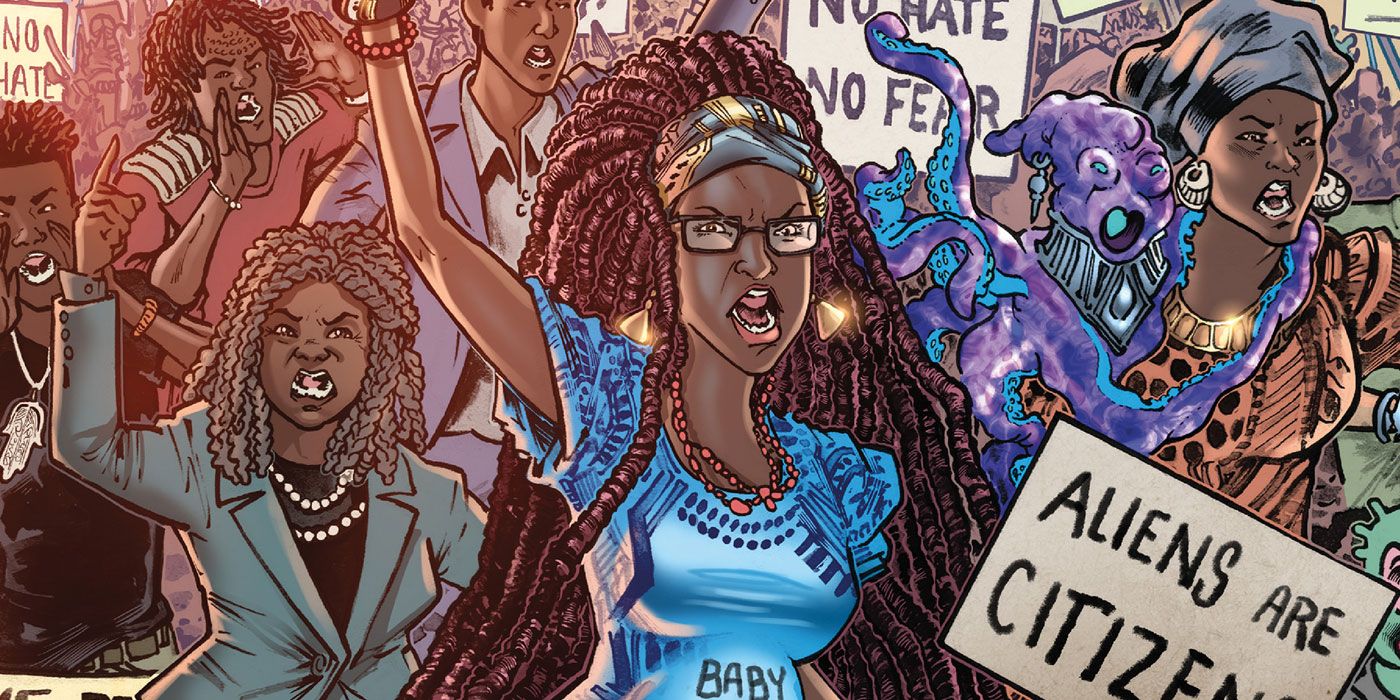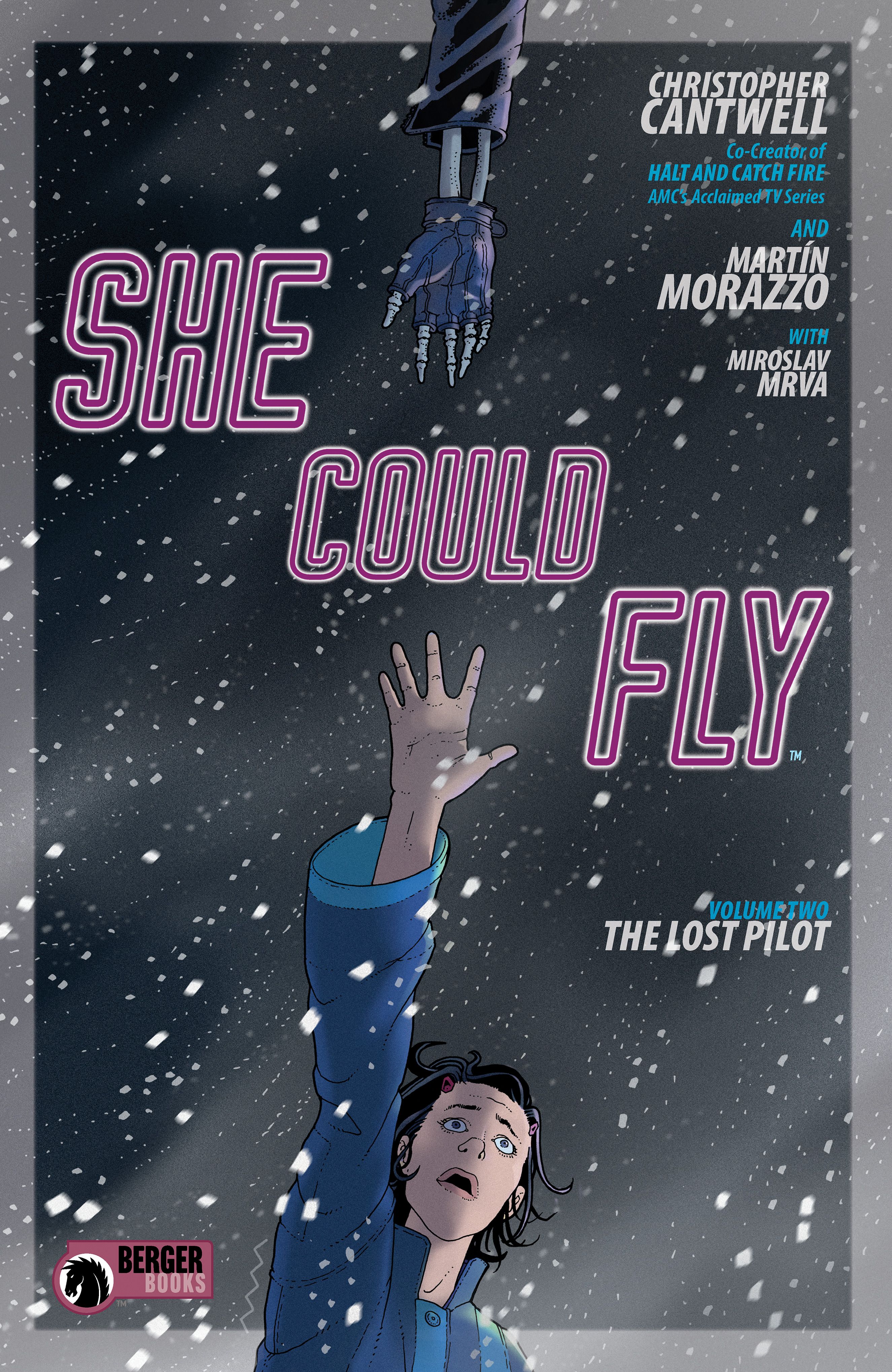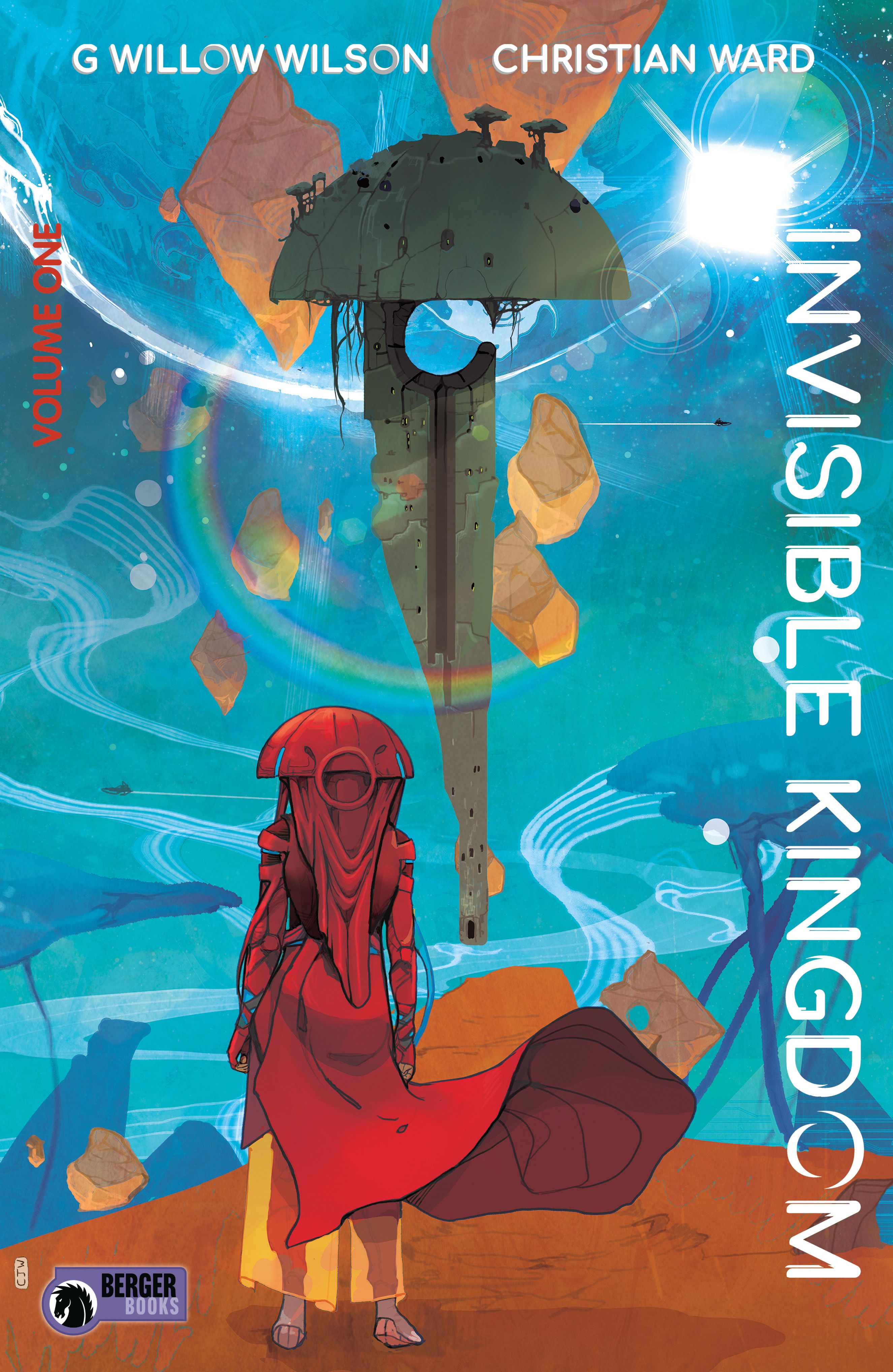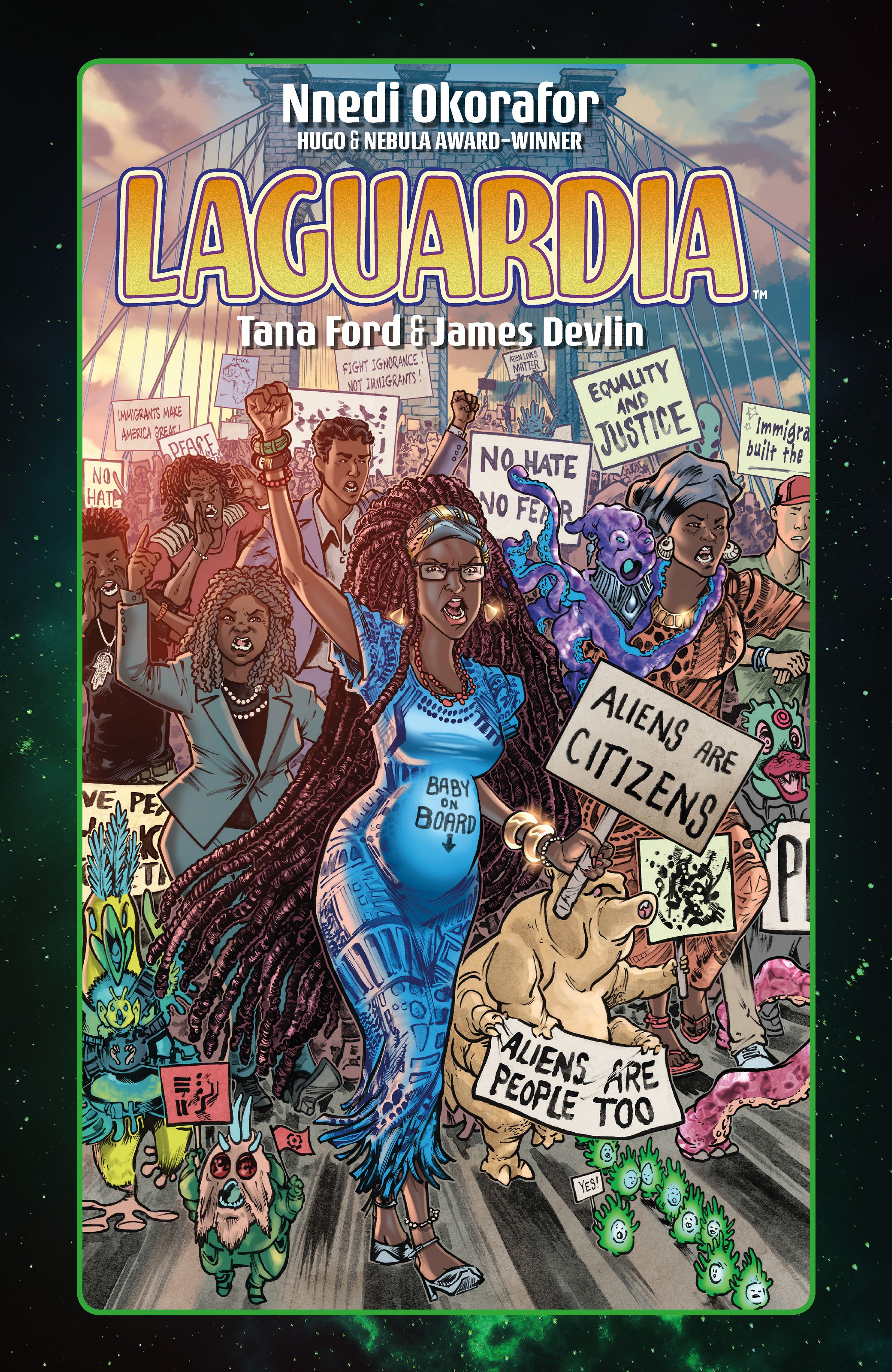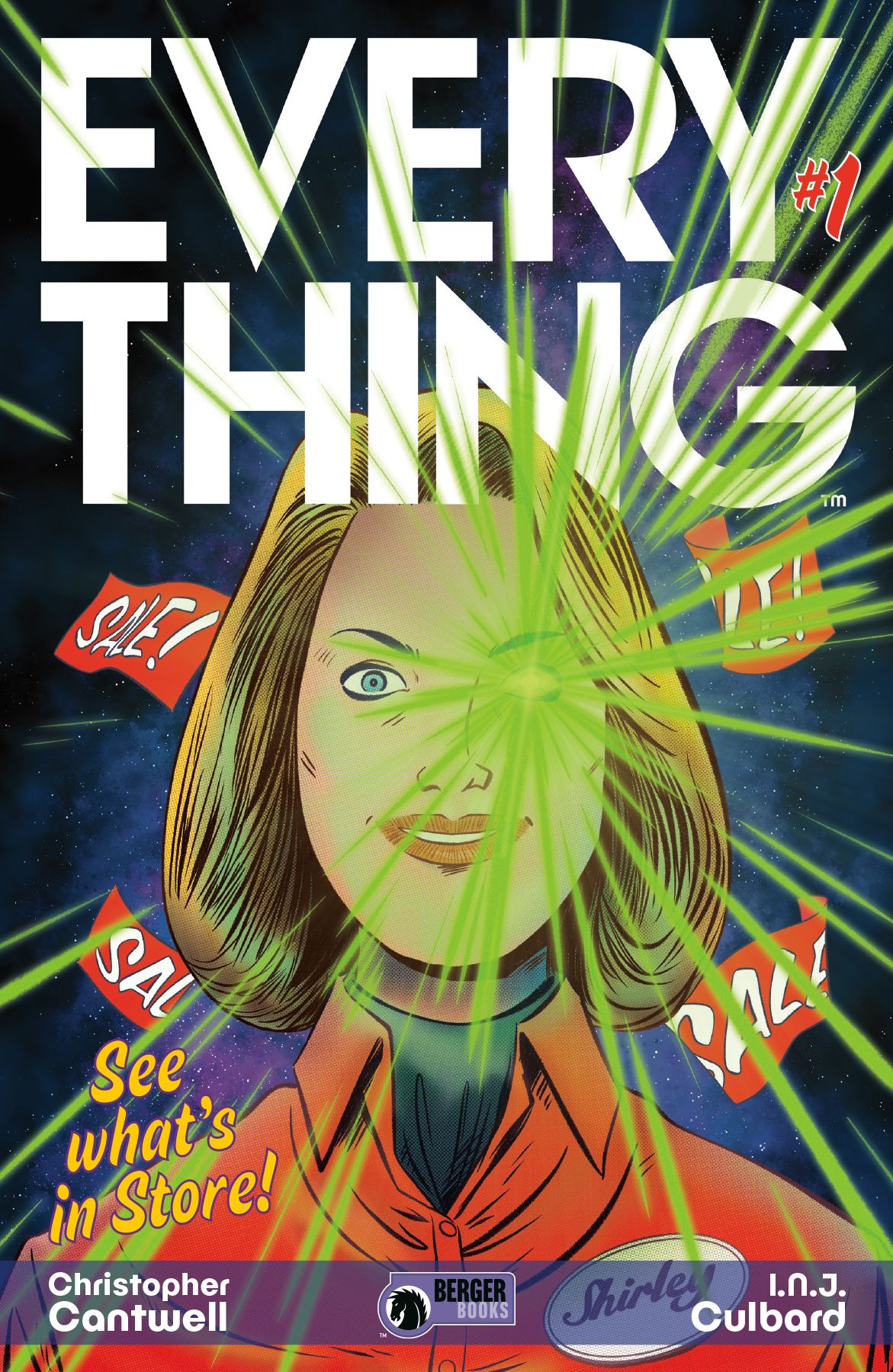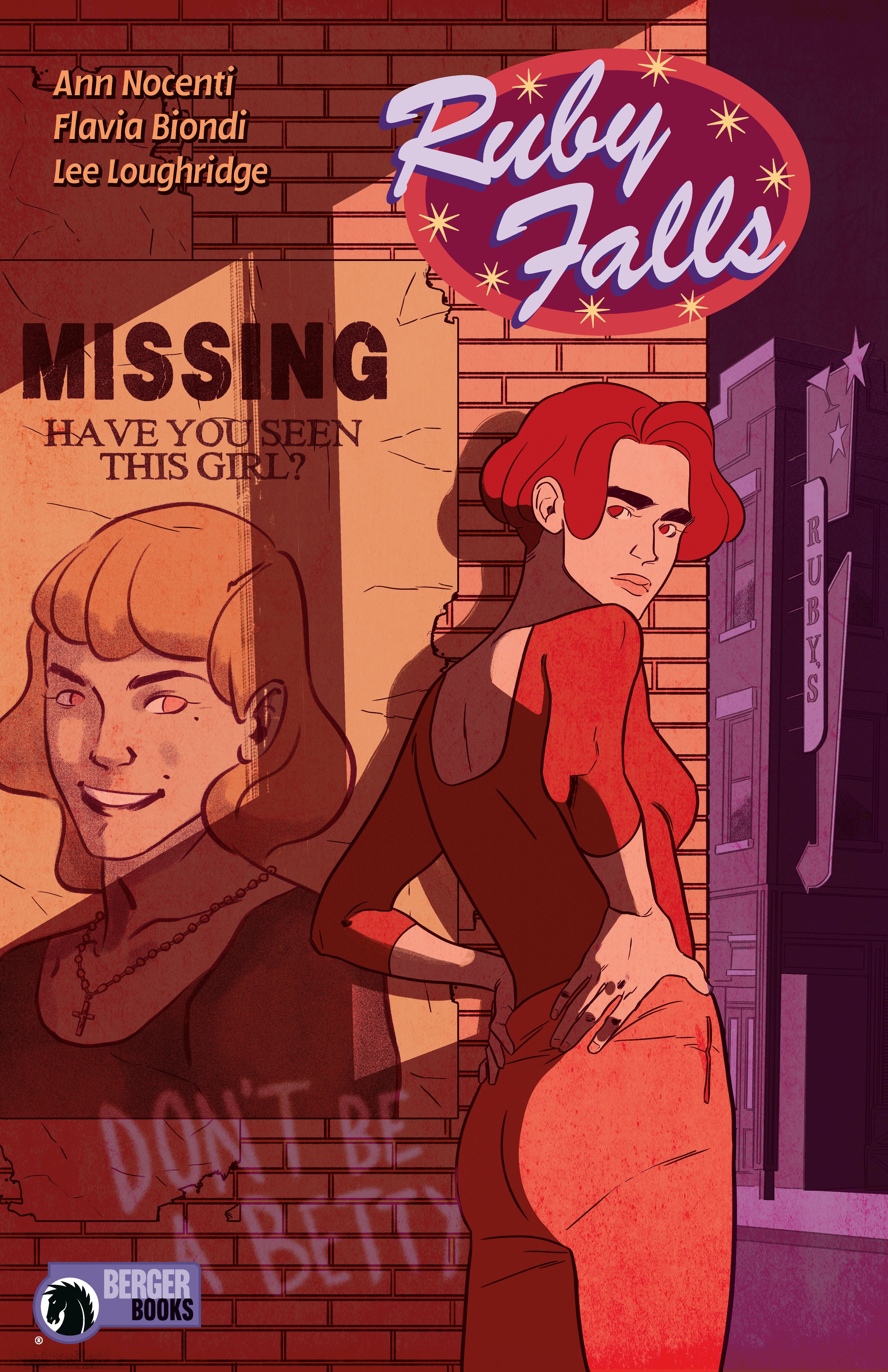Karen Berger's legacy in comics will forever be tied to an imprint that is, nearly seven years after she left it, officially gone. But the celebrated editor still has stories left to tell after the demise of DC Comics' Vertigo line, as her current slate of projects at Berger Books can attest.
Launched last year at Dark Horse as a haven for both Berger's sensibilities and her shared commitment to creator-owned content, Berger Books has already rolled out noteworthy titles from the likes of G. Willow Wilson, JM DeMatteis and a host of talent who has never worked in comics before, like Halt & Catch Fire showrunner Christopher Cantwell. Even as Vertigo's proverbial lights are turned off, the editor who changed what mainstream comics are is prepping another season of comics that carry on its innovative legacy.
CBR spoke with Berger about her take on Vertigo's end, why there's a future for creator-owned comics even as corporate publishers double-down on franchise management. And she digs into what new series like Nnedi Okorafor and Tana Ford Laguardia and Emma Beeby and Ariela Kristantina's Mata Hari say about how she's editing comics for the here and now.
CBR: Karen, DC just "shuttered" or "sunsetted" or whatever euphemism is being used... they closed Vertigo. Looking back on everything from the past few years of your career, does this surprise you at all?
Karen Berger: Oh, no. It was not surprising at all. Not at all. Honestly, if anything, I'm surprised that DC kept the line around as long as they did after I left. DC post-2010 is not really a place where Vertigo was set up for to exist in that atmosphere. The company became solely interested in material that they own and control. Vertigo was just not in that zone for them. I didn't leave DC because I was happy. I left because the line was marginalized, and it was an afterthought. They were not interested in what was going on there. So to answer your question, I was not surprised at all.
It feels from the outside that for years DC worked more like a traditional book publisher, but since the various management changes, the company is now much more squarely a media management company. The attempt was to make Vertigo a "brand" that they could take to TV or movies, but that ultimately did not happen in a way to keep those books coming. Is that one break for you personally – that you're in a pure publishing mindset?
Yeah, I totally come from the story, and the story comes first. If a property has potential for other media, that's great. But that's not why we're doing it. We're doing it to bring out stories, first and foremost. DC changed, and the industry changed. Really, DC and Marvel have both changed. Their corporate overlords became so much more focused on what they can own, what they can control and what they can exploit. And what they can recycle, honestly. They want to keep going back to the well on what's familiar. That's what superhero mainstream comics is, and that's practically what most of the film industry is, too. That's what we're seeing between Marvel movies and Disney movies and Star Wars movies, and everyone doing their own sequels and multi-part continuing epics. It's harder and harder in publishing and in film to do new, original material and get noticed.
I think DC just went down that path, and when Warner Bros. came in, it was a licensing mentality. As you were saying before, it was a branding kind of thing. There are all those corporate words you use for product, not stories. That's essentially where DC is at. I'm not saying you can't do good stories there. There's a lot of good work that is being done on DC characters, and Marvel characters have had some good work, too. But that's a totally different thing when talking about material that writers and artists don't own – stuff that ultimately benefits the company rather than promotes new visions and new ideas for the comics medium. That's just me on my soapbox! [Laughs]
Have you thought about, in practical terms, what this means for some of the backlist you've worked on over the years? Things like Sandman are obviously based on DC characters, but plenty of Vertigo books were wholly original and owned by creators, and I believe some have migrated to other publishers. Do you think this means more books will make that kind of a jump?
I think it really depends. If DC can still make money off of it, I'm sure they'll hang onto it. If it's one of the 15 or 20 monthly series that still has an active backlist, I'm sure they'll hold onto it. But actually I really don't know. They might hold onto some things that aren't in print anymore but that they have options on to see if they can exploit them in film. I really don't know what they're doing. They don't care about the publishing on stuff that isn't going to make them a lot of money, so maybe they'll let the creators claim them back. They have to request a reversion because the stuff doesn't automatically revert. The creators have to request it depending on their deal, and I don't know what happened to the deals after I left. But I think some stuff will go to other publishers. Sometimes, DC did "allow" creators to take books to other publishers so they could get top writers to sign on for more superhero stuff. That's one of the ways they helped weaken [Vertigo].
It's really a business for them, and for me, it's more than a business. Of course, you want to make money on the books. You don't want to publish in a vacuum, and you want to have an audience an want to do great things. But I do think DC looked at it more from a business perspective where I always tried to find a balance between the creative and the business in how I ran Vertigo.
Tell me about your working situation now. Dark Horse is on a completely different coast from you, so it's a pretty big difference from working in an office with the publishing line to how Berger books is set up. Do you have an office in New York that you go to as opposed to working from the home like most freelancers so you can keep those professional and personal sides separated?
Yeah, I actually do have an office a few blocks from my home in New Jersey. At the beginning, I didn't. I worked in one of my sons' bedrooms. [Laughs] But yes, I am trying to keep that separation. But I'm a freelance editor, too. I'm not on staff at Dark Horse, but I have a great arrangement there. [Dark Horse Publisher] Mike Richardson has been incredibly supportive of what I'm doing. The company's great, and I'm really happy with how things have gone there.
As the Berger Books line has debuted over the past year plus, Dark Horse has referred to things as coming in waves. How much have you been trying to shape this line in terms of publishing seasons? Is there a mix with each new batch you want to strike, or is it just scheduling books once they've come together creatively?
When I first started the line, I obviously wanted to create a presence. So I systematically came up with a plan to start off with a set number of books and then have another set number following. You want to create a buzz and establish the idea that you have a steady flow of books coming out. Then I figured I'd back down a little bit, just because I am the only editor, and it's a hell of a lot of work. [Laughs] I didn't really realize how much work I'd be doing when I started this. And it's been great, and I've been enjoying it. I now have an assistant who's wonderful, and my husband Richard Bruning is the art director/graphic designer for the line, but as far as acquiring material, it's all me. That's a lot different than what I was doing at Vertigo, but part of the reason why I wanted to get back into comics was really to get my hands dirty again and get back in the trenches. I wanted to work with people I hadn't before and bring writers and artists from other fields into comics. But I also wanted to work with people I had worked with before. I wanted a whole mix.
With Vertigo, the further the line went, the less and less I was hands on. I was involved in all the projects, but it's not the same thing as editing hands on. So that's how I approached the work at Berger Books. So while I'm not doing as many titles as I did in the first year, I do have four or five series a year and then the collections that come with all of that.
I noticed that you've still been committed to the single issue-to-trade collection format, even on books that are ultimately meant to be standalone volumes. I know there's a financial incentive for serialization, but do you prefer working one chapter at a time with talent?
So much of it is the economics of it. If you're going to collect something, it's still cheaper if you can serialize it over the issues because you're getting two bites out of that apple. But having said that, it is getting harder because the market is so oversaturated with material. That's not news, but for years people have been saying, "What's going to happen to the direct market?" Retailers only have so much money, and there are variant covers, and while a lot of the crazy variant stuff coming out of Marvel and DC has died down, it's still there. And money goes towards that. There are a lot of publisher out there, and I think it's great that so many publishers are coming into comics, but at the same time we're all after the same dollar. Economically, it's getting harder and harder to do this stuff and to pay people a decent wage, which is what I like to do as much as I can. You know, Image is a great deal if you can afford to work for free and get it all on the backend – if there ends up being a backend. That's not just Image, but for everyone, the industry isn't as healthy as it was. It looks like it is, but there is too much material out there.
And then you look outside the direct market and into the book market, and there's such growth with middle grade graphic novels. That's the area to be. That's wonderful. There's also YA, but it's more Middle Grade which is creating new readers to come over and eventually read whatever kind of books they'll graduate to. Being introduced to comics at a younger age will help diversify their interests as they get older.
So with Berger Books, the market is in a place where I want to keep enough material out there that people will say, "Hey, there's some really great stuff coming out." But I don't want to put out too much because the market can't support it, and I can't do that much work anyway.
With many of the books in the line – Laguardia from Nnedi Okorafor and Tana Ford comes to mind but also others – it seems like you've worked to match outside talent with veterans. Or at the very least you've got established comics creators working alongside newer voices. How much has that been a factor as opposed to just finding the right creative chemistry between collaborators?
It's been more the former than the latter. If you have a writer who's new to comics, you want an artist who knows the quirkiness of the comics storytelling form. But in some cases, I actually didn't do that. I try to work with new writers and artists, and if you look at something like Mata Hari, [writer] Emma Beeby had spent a few years at 2000AD writing Judge Dredd and Judge Anderson there, and Ariela Kristantina [the artist] had done maybe a year of stories at Aftershock and a Marvel story here and there, but both of them are still relatively new. In some cases, you do have the old and the new, but for me, what I think is great about comics is the collaborative aspect of it. Personally and selfishly, I've been doing this a long time, and I want to work with people whose work excites me. It could be someone I've worked with before or someone new from different fields. Also: I really wanted to work with more women. In my experience in comics, there just weren't as many women writers or artists allowed. So I want to prove that they are out there and increase the visibility of women creators and people who may not be represented in comics as much as others.
Another aspect I see in Berger Books is that the talent seems to be coming in with their most personal projects. They're not autobiographical, but someone like Christopher Cantwell on She Could Fly draws a lot from his own life. Does this grow out of the line's place as a creator-owned haven, or do you ask them "Pitch me the story you've wanted to tell forever"?
I think it's pretty organic, to be honest. A lot of it is me approaching writers or writers approaching me with ideas, and the material I gravitate towards tend to have a strong thematic resonance to them. I tend not to do straight A-to-B stories. You have to have some of those elements for any kind of story, but I'm more interested in the motifs and the thematic resonance. What are these stories about, really? What are we talking about in terms of humanity and society and the world – the good, the bad and the indifferent? I like there to be a density of ideas in the stories I edit. And people that I work with tend to like that stuff too. It's a good pairing.
You do have a few series that are truly ongoing, including Invisible Kingdom from G.Willow Wilson and Christian Ward as well as the incoming Everything from Cantwell and I.N.J. Culbard. One of the great innovations you did early at Vertigo was championing the so-called ongoing yet finite series – books that went for 70 or 80 issues before wrapping their overall story. Is that the kind of publishing you hope to do more of now?
Yeah. I'd like to do more of them, but again, a lot of it is the market. Can the market support that? It's part of the problem. So many of the series are done here are finite miniseries. But She Could Fly we've done two miniseries for, and I'd like to do more. I want to do series that can create a library of books. It's harder and harder to sustain that in this market these days. That's the dilemma we're all facing – especially in indie publishing. There's so much great stuff out there, and from the outside looking in, people must be going, "Comics are in great shape." So I try to be optimistic. You do the best work you can, and you let the writer's and artists do good work and hope the audience will find it. If they don't find it now, they will a little bit later. It's a balance. It's a dance, really – a delicate dance and maybe dangerous at times more so than any other time I've been in comics.
Did you learn anything about how Berger Books will be able to operate from the first wave that has helped you keep creatively charged for what's ahead?
I feel really excited about having my own label again. It's really nice. It's great to be in comics and operating in a much smaller way than I did at Vertigo. I think it's a tough question to answer because I'm excited creatively by what I'm doing, and I'm excited to work with the people I'm working with. I've got stuff coming out that hasn't been announced that's really different for me. You'll see it in 2020. As long as I've been doing comics, it's been "How can I work with writers and artists to tell different kinds of stories?" And one thing about creativity is that there is no limit in terms of people's imaginations and stories they want to tell.
For me, what I think we've been doing at Berger Books is finding things that excite me and seem to be exciting people out there, too. If something creatively moves me, we go for it. I don't want to publish the same things as I was publishing 20 years ago. But that said, some of what I published 20 years ago was so ahead of its time I think we could put it out now, and people wouldn't blink an eye. I have a great opportunity now to work with novelists like Nnedi and Darin Strauss [on Olivia Twist] as well as TV writers like Chris Cantwell or comics writers like Willow Wilson and Marc DeMatteis, and it's a great thing.

